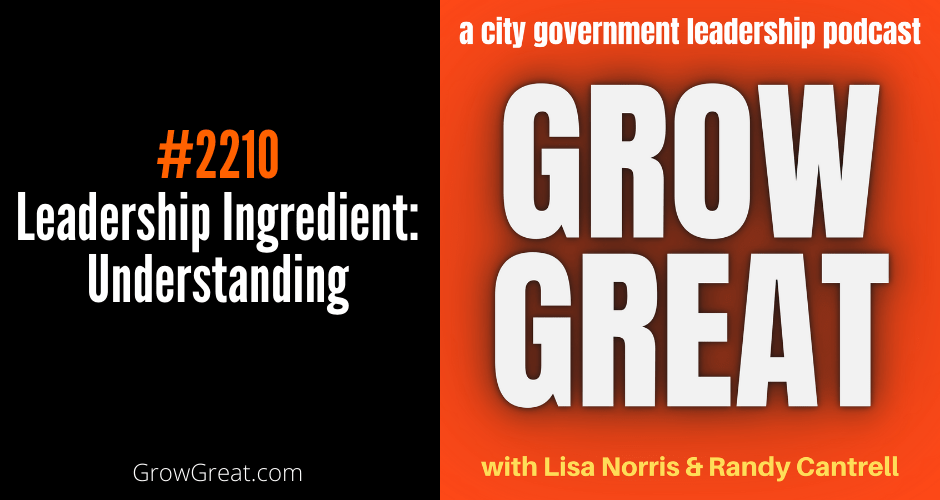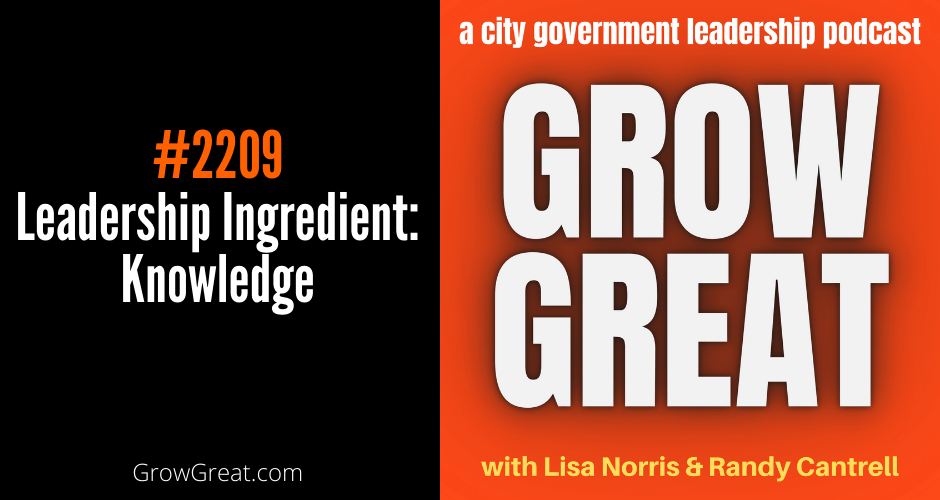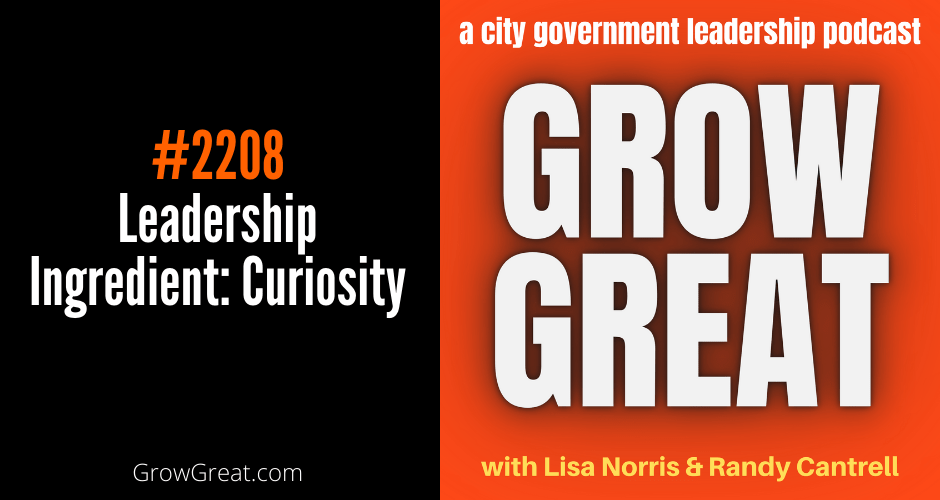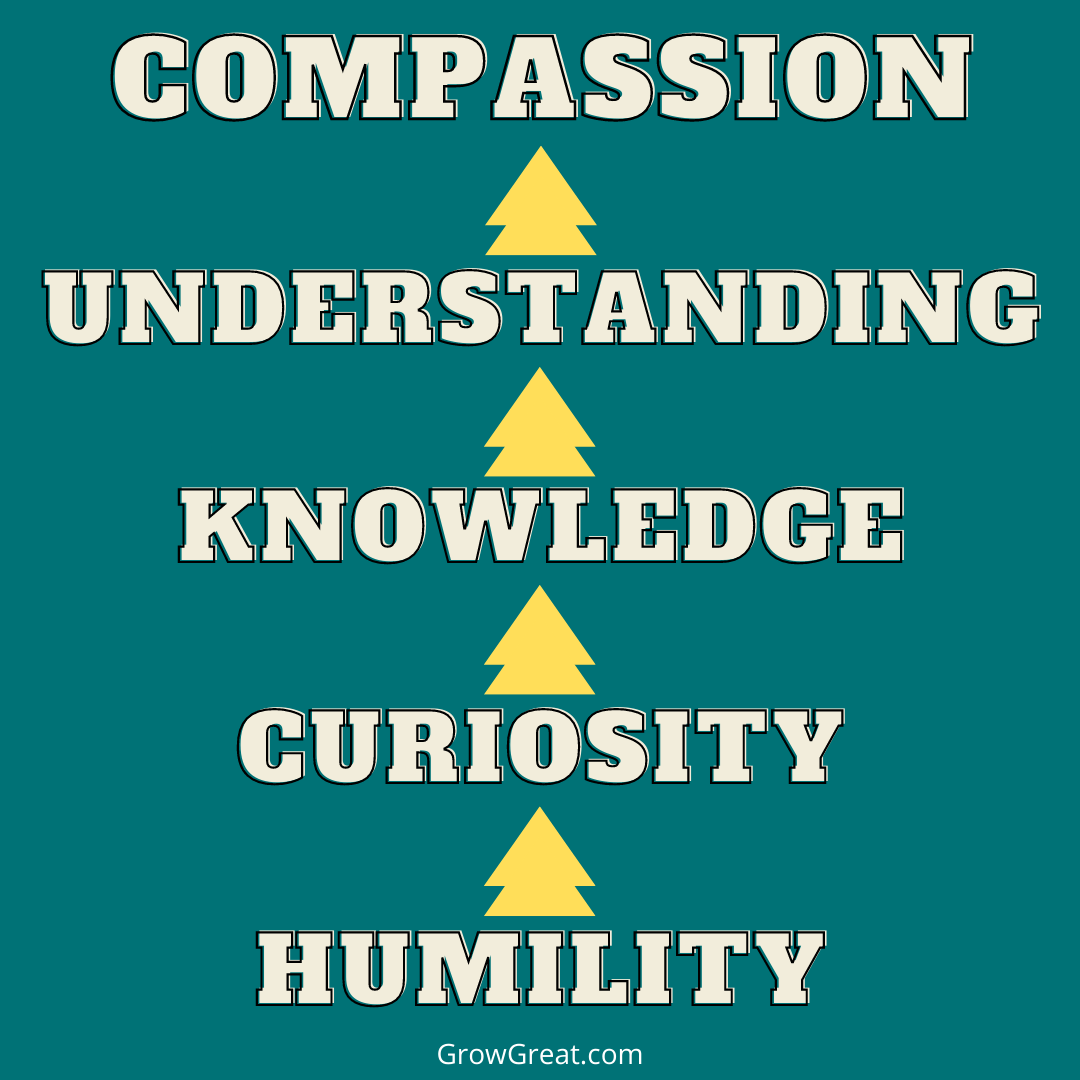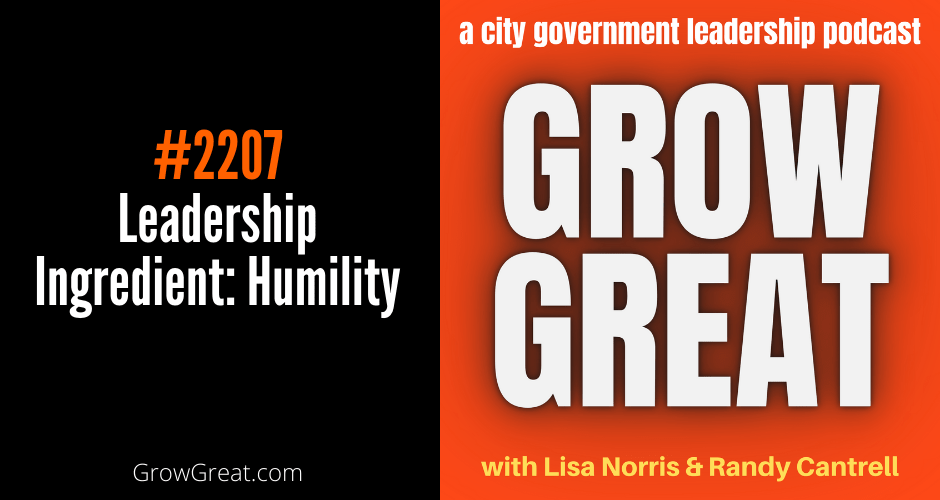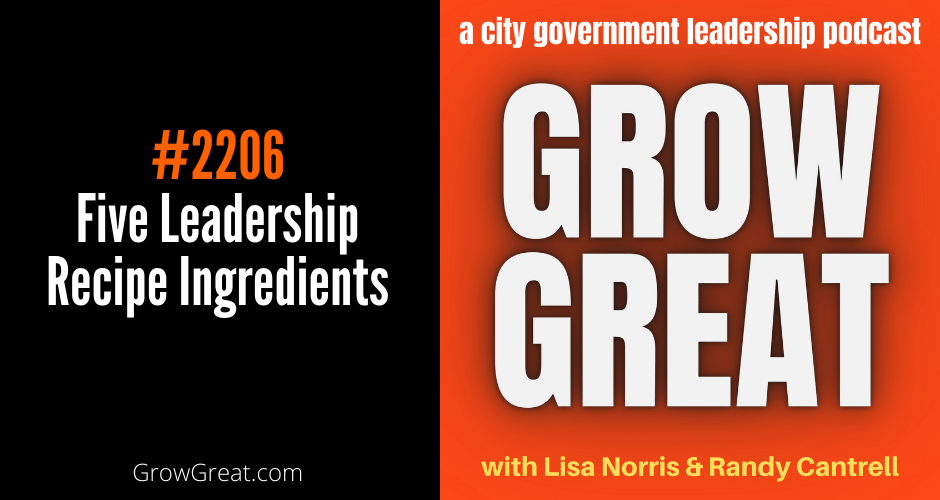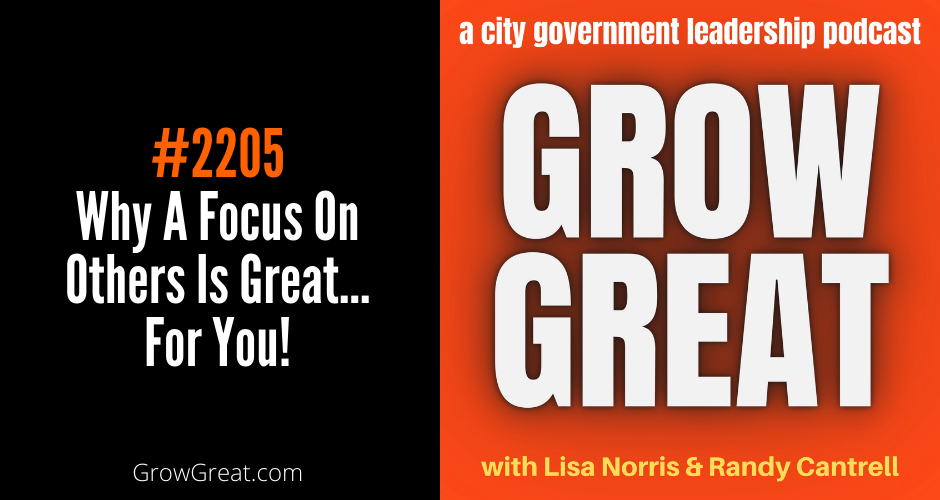#2210 – Leadership Ingredient: Understanding
Podcast: Play in new window | Download (Duration: 40:44 — 37.3MB)
Subscribe: Apple Podcasts | Spotify | RSS | More
A lack of understanding is never an advantage. Now armed with facts, figures, and other forms of knowledge, leaders need to use that knowledge in making wise decisions. That’s impossible if we don’t understand.
Understanding answers many questions, most importantly, “Why?”
Today, Lisa and I talk about the power of understanding with stories from our own leadership experiences. Share your insights with us. We’d love to hear them.
Be well. Do good. Grow great!

#2210 – Leadership Ingredient: Understanding Read More »
